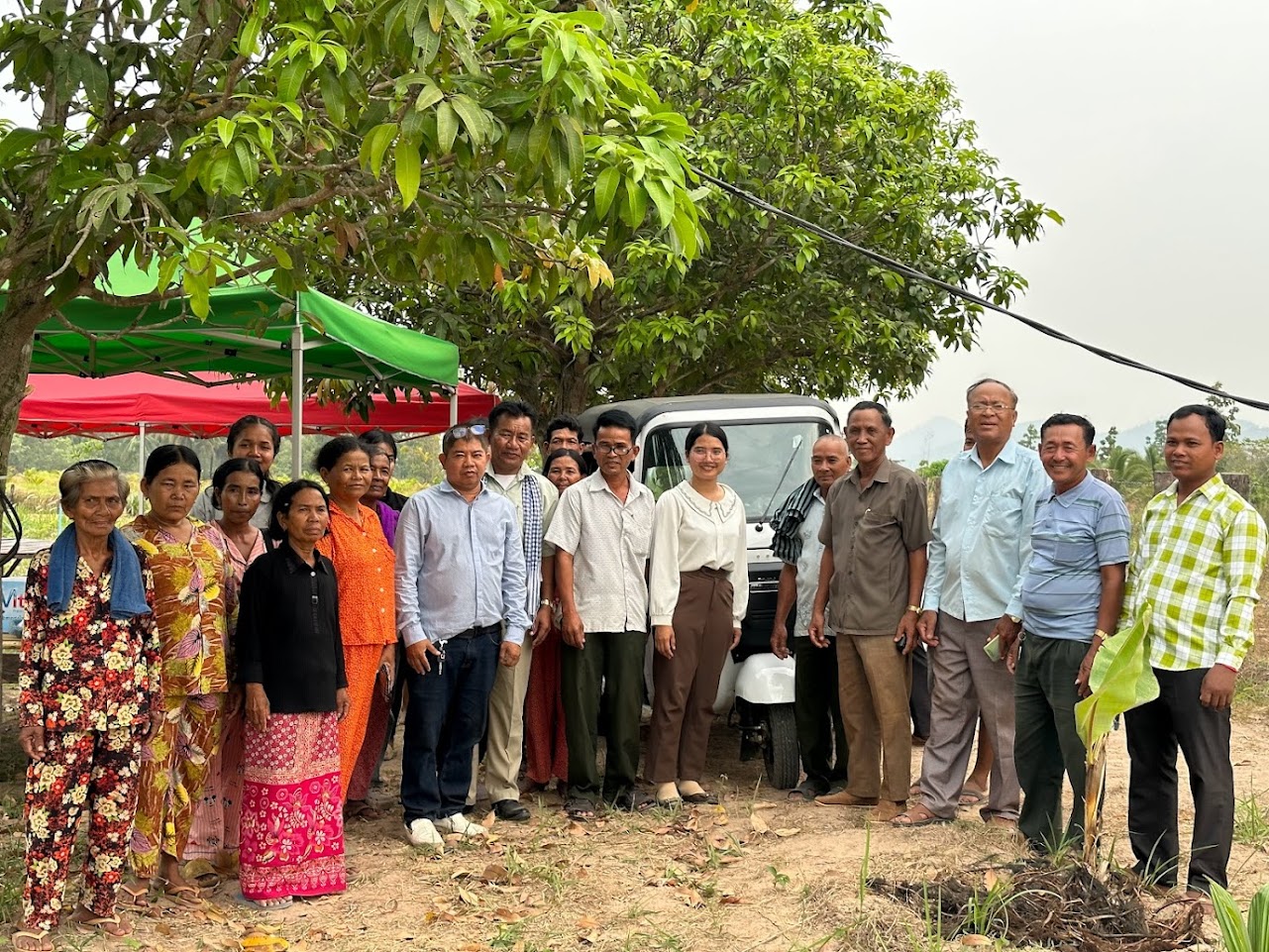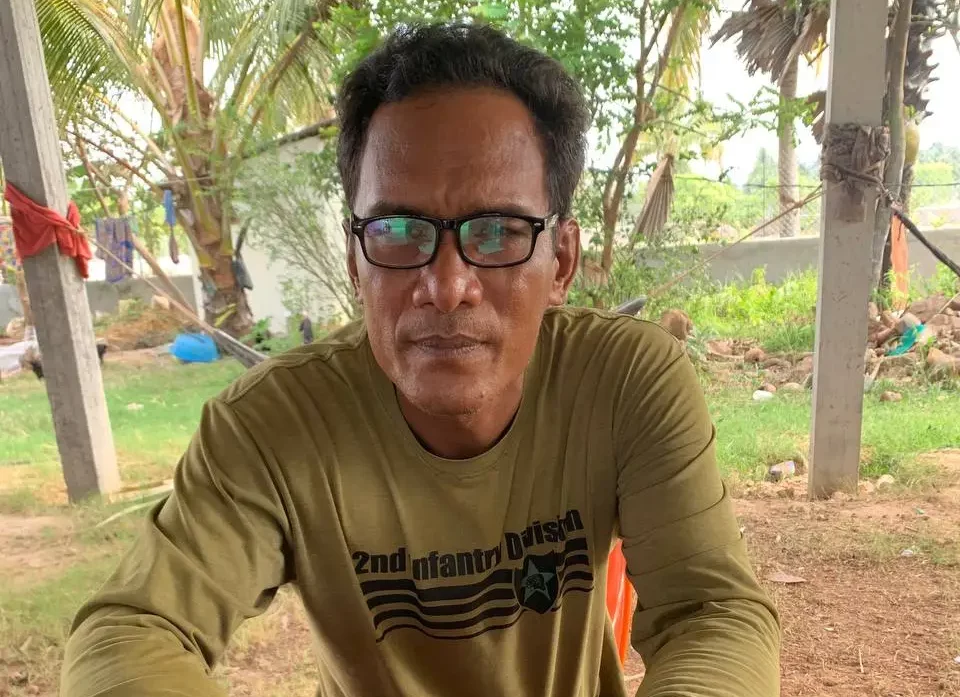By Lim I-Phing
In Cambodia, the month of April is known for its scorching heat, but it also holds great cultural and historical significance. Traditionally, Cambodians celebrate their New Year during this month, which is a time when families come together in joyous reunions. However, April also serves as a solemn reminder of the atrocities of genocide that have occurred in various parts of the world. Around the world, April is recognized as genocide awareness month.
Looking back through history, April has seen many horrific acts of genocide in countries such as Germany, Bosnia-Herzegovina, Rwanda, and Cambodia. In Cambodia, the communist Khmer Rouge regime rose to power on April 17, 1975, resulting in genocide and atrocity crimes and ultimately the death of an estimated 1.4 to 2 million people.
During the month of April, the General Assembly of the United Nations, along with countries and institutions around the world, commemorate the Holocaust Remembrance Day, a day dedicated to remembering the victims of genocide and promoting awareness and participation in the prevention and prosecution of such heinous acts. Overall the month serves not only as a poignant reminder of the importance of acknowledging and learning from the dark chapters of history to prevent similar atrocities from occurring in the future, but also taking time to engage and work with survivors of these atrocities today, who continue to struggle with even the most basic human needs.
On April 13, 2023, a team from the Queen Mother Library of the Documentation Center of Cambodia (DC-Cam) organized a ceremony to recognize the transfer of a donated tuk tuk, otherwise known as a rickshaw, to Bak Nim Village, which is located in Chres Commune, Chum Kiri District, Kampot Province. The event was attended by 30 survivors of the Khmer Rouge regime who live in Bak Nim village (consisted of 464 families), along with local authorities and the Bak Nim pagoda committee. The primary objective of this generous donation is to fill a critical need in the remote village for a free means of transportation for survivors of the Khmer Rouge regime to access medical services and receive treatment in public and private clinics in the area. In large part due to their challenging living conditions and financial constraints, many of the villagers have never had the opportunity to undergo a health check-up or access healthcare facilities. The tuk tuk will serve as a vital mode of transportation for survivors to reach hospitals or health centers with ease. It could not have come at a better time given the multiple challenges of survivors in the area.
The village is situated in an isolated area, along the foot of the Domrey Romeal Mountain, which has poor road infrastructure that is often in disrepair. In addition, the village lacks access to electricity and clean water, further underscoring the critical need for reliable transportation options. DC-Cam’s initiative to provide a tuk tuk to Bak Nim village exemplifies the organization’s commitment to supporting and uplifting the living standards of the survivors of the Khmer Rouge regime, particularly those in remote and disadvantaged areas. It is a commendable effort to address the transportation and healthcare needs of the villagers, and this small initiative represents a positive step toward promoting well-being and inclusivity in the community.
At the outset of the program, Phat Chansonita, the Team Leader of the Kampot Volunteer Team, extended a warm welcome to all the participants. She provided an overview of the significant work undertaken by DC-Cam in the village. Currently, there are six volunteers from DC-Cam who have been diligently visiting and conducting interviews with 170 survivors of the Khmer Rouge regime in the village. These interviews aim to document and educate people about the genocide and mass atrocities that occurred during the Khmer Rouge regime, shedding light on this dark chapter of history. In March 2023, as part of the ongoing project “Improving the Rights and Improving the Health of Khmer Rouge Survivors,” a team from DC-Cam also visited Bak Nim village to conduct basic health check-ups for the survivors. These check-ups included monitoring heart rate, blood pressure, and conducting blood, fat, and sugar tests, all of which were conducted and supervised by a team of internationally trained Filipino doctors. Additionally, on two occasions, the team distributed gift boxes to 84 Khmer Rouge survivors living in Bak Nim village. In the upcoming month of May, the team plans to conduct a series of additional health check-ups for the remaining survivors in Bak Nim village, further underscoring DC-Cam’s unwavering commitment to improving the health and well-being of the survivors and promoting their rights.
As a continuation of the previous proceedings, Mr. Sok Vannak, another DC-Cam team leader, presided over the ceremony to handover the tuk tuk to Mr. Poy Ouch, the chief of Bak Nim village. As chief of the village, Mr. Poy Ouch represents 436 families and a total of 1,491 individuals. The tuk tuk will fill a critical need in the community and DC-Cam looks forward to overseeing the successful use of this equipment by all members of the community seeking to receive medical care and services. Mr. Poy Ouch expressed his profound gratitude for the donation and he thanked in particular, DC-Cam’s Director, Mr. Youk Chhang, who holds the esteemed positions of founder of the Queen Mother Library and the Sleuk Rith Institute. Mr. Ouch stated, “I am extremely elated and appreciative of the kindness of the Director, Mr. Youk Chhang, for providing this assistance and donating tuk tuks to Bak Nim village, which will help fill a significant gap in low cost transportation for survivors needing medical care and assistance. Furthermore, I would like to put forth two additional proposals with regards to the utilization of the donated tuk tuk. The first proposal centers on allowing the tuk tuks to be utilized in case of emergencies, such as situations where a villager falls critically ill or a pregnant woman requires urgent medical attention and needs to be transported to the hospital. The second proposal pertains to the utilization of the tuk tuks by survivors who wish to pay homage and receive counseling at the pagoda. Survivors of the Khmer Rouge regime should be granted the opportunity to use the tuk tuks as a means of transportation to the pagoda, as they have been deprived of this opportunity until now. ” The tuk tuks were recognized by all to be an important transportation resource that could help survivors in a variety of physical and mental health, and welfare related activities that survivors were otherwise precluded from accessing as a result of their remote location and their respective socioeconomic and disability circumstances. These proposals reflect the profound impact and significance of the generous donation made by the DC-Cam and the Queen Mother Library, and the invaluable ongoing assistance by DC-Cam to Bak Nim village and its community of survivors.
Englsih Text: Lim I-Phing and Chey Chansineth
Phat Chansoneta’s Blog: https://18.143.63.241
Photo: CamboCorps, Group 5
April 13, 2023
Documentation Center of Cambodia Archives


